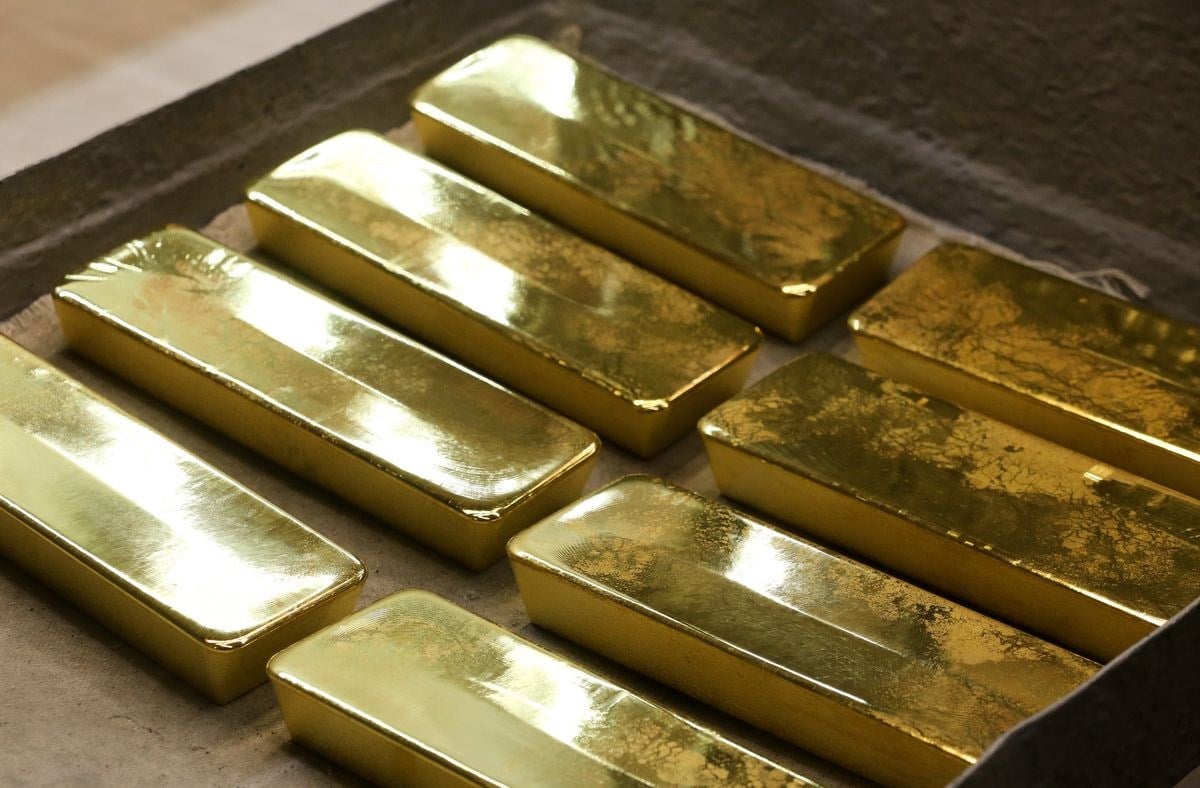Gold rises amid G7 plans to ban imports from Russia
Gold prices are facing hikes as several nations mull imposing a ban on the imports of Russian oil in light of the Ukraine war.
-

Russian gold bars
Gold made gains on Monday amid the emergence of news that several G7 nations are planning to officially ban the import of bullion from Russia in light of the Ukraine war.
Spot gold gained 0.5%, reaching $1,835.75 per ounce, while US futures gained 0.4% at $1,837.30.
"The G7 import ban on Russian gold seems to be providing some short-term support in early Asia [trading]," OANDA senior analyst Jeffrey Halley said.
However, he said, it is normal for gold to make gains in light of such news, projecting that there would not be any structural changes in the supply and demand outlook for gold, which has the most major effect on gold prices.
The United Kingdom said Sunday that four of the G7 countries were set on banning exports of Russian gold in the newest bid to force Moscow into taking the full blow of the sanctions imposed on the country over the Ukraine war.
The decision was taken by the United Kingdom, Canada, Japan, and the United States, with British Prime Minister Boris Johnson claiming that the action would "directly hit Russian oligarchs and strike at the heart of [Russian President Vladimir] Putin's war machine."
The headline will be quickly digested, said Stephen Innes, managing partner at SPI Asset Management. "[A]nd the market should go back to its tug of war between higher front-end rates, negative for gold, and recession odds meaning sooner rate cuts, positive for gold."
Several US central bankers said Friday they were in favor of more serious interest rate hikes despite economic data showing that inflation expectations are less severe than they were projected to be.
Gold is generally perceived as a hedge against inflation, but if a state decides to hike interest rates, the opportunity cost of holding bullion increases, which has no interest whatsoever.
The Fed has been for the past few months aggressively hiking interest rates to try and lower rising prices, but its efforts did not materialize in May, with consumer prices hitting four-decade highs. Consumer prices in May rose 8.6% and soared over what economists thought was the peak in March.
The Biden administration has tried to absolve itself from responsibility for the widespread inflation hitting the country, with Biden himself trying to cast the blame on Russia for the record food and gas prices affecting US citizens.
Energy prices have risen 34.6% over the past year, the fastest since September 2005, food prices have increased 10.1%, and the cost of fuel oil increased by more than two-fold, soaring 106.7% - the largest increase in the history of the consumer price index. A gallon of gas across the US reached $5 nationwide for the first time in history, setting a new record for oil prices.
Spot silver rose 1.3% to $21.38 per ounce, platinum rose 0.7% to $913.51, and palladium rose 2.6% to $1,925.31.

 3 Min Read
3 Min Read









